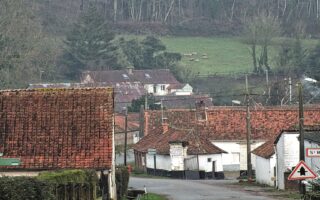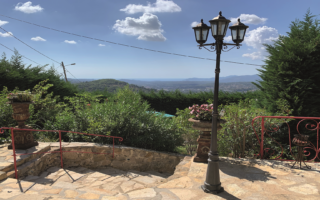Planet of the Apes by Pierre Boulle
On the centenary of his birth, R�gine Godfrey recounts the story of Pierre Boulle, World War II hero and author of Planet of the Apes and The Bridge on the River Kwai…
Pierre Boulle was born in Avignon on 21 February 1912, the son of lawyer Eug�ne Boulle and Th�r�se Seguin. As a child, Boulle spent his formative years roaming the countryside fishing and hunting. However, in 1926, his idyllic childhood ended with the sudden death of his father. Buckling down at last, he studied science at the Sorbonne and subsequently entered the prestigious �cole Sup�rieure d’�lectricit� de Paris. After graduating in 1933 he became an engineer and by 1938 he was working in Malaya on a British-owned rubber plantation 50 miles from Kuala Lumpur.
World War II saw him thrown into action as he joined de Gaulle’s Free French Forces in Singapore where he received training in espionage and sabotage. Posing as Mauritian-born Englishman Peter John Rule, Boulle helped to organise resistance to the Japanese and performed daring acts such as crossing the Indochina border by passing through rapids on a small bamboo craft, floating in the pitch-black night covered in leeches.
He was caught on the Mekong River in 1942 by Vichy loyalists and was sentenced to hard labour for life. It was while imprisoned in Saigon that he sowed the seeds of his future career by starting a diary, written on scraps of paper.
He escaped in 1944 and served in the British Special Forces in India until the end of the war, resuming his career in Malaya after the Armistice. His heart however was no longer in the job and Boulle gave up a career on plantations in order to write. In his own words it was a ‘noble conclusion to a series of unconventional adventures’.
Returning to France and unable to afford his own apartment, he took up residence in a Paris hotel in the Latin Quarter, but later moved in with his sister who had been prematurely widowed.
Pierre Boulle’s first novel, William Conrad, published in 1950, was a spy story set in wartime England. Its first-hand authenticity and portrayal of the British character earned much critical praise. The book was published in English as Not the Glory, translated by Xan Fielding, a former British special agent, who became Boulle’s regular translator.
After finishing his autobiographical work Le Sacril�ge Malais, (Sacrilege in Malaya), in 1954 Boulle began to write Le Pont de la Rivi�re Kwai. The plot depicts a British lieutenant-colonel who, after settling his differences with a Japanese POW camp commander, decides to cooperate and oversee the construction of a railway bridge by his men. Unfortunately, he is oblivious to a plan by the Allies to destroy it. The novel won the Prix Sainte-Beuve in 1952; David Lean’s brilliant 1957 screen adaptation, starring Alec Guinness, took the world by storm. More Hollywood success followed the publication of Boulle’s 1963 science-fiction book La Plan�te des Singes, a bestseller in which talking apes are the dominant species over mankind. Five years after its publication, film director Franklin J. Schaffner turned this wry tale on science and humanity into the Oscar-winning film Planet of the Apes, with Charlton Heston in the lead role. The story inspired four sequels, two television series and two remakes. Boulle’s originality lies in the fact that his books can be read from two different angles: either as sheer entertainment, or as a call to reflect on human progress. He died in Paris in 1994 aged 81, having never married.
Share to: Facebook Twitter LinkedIn Email


